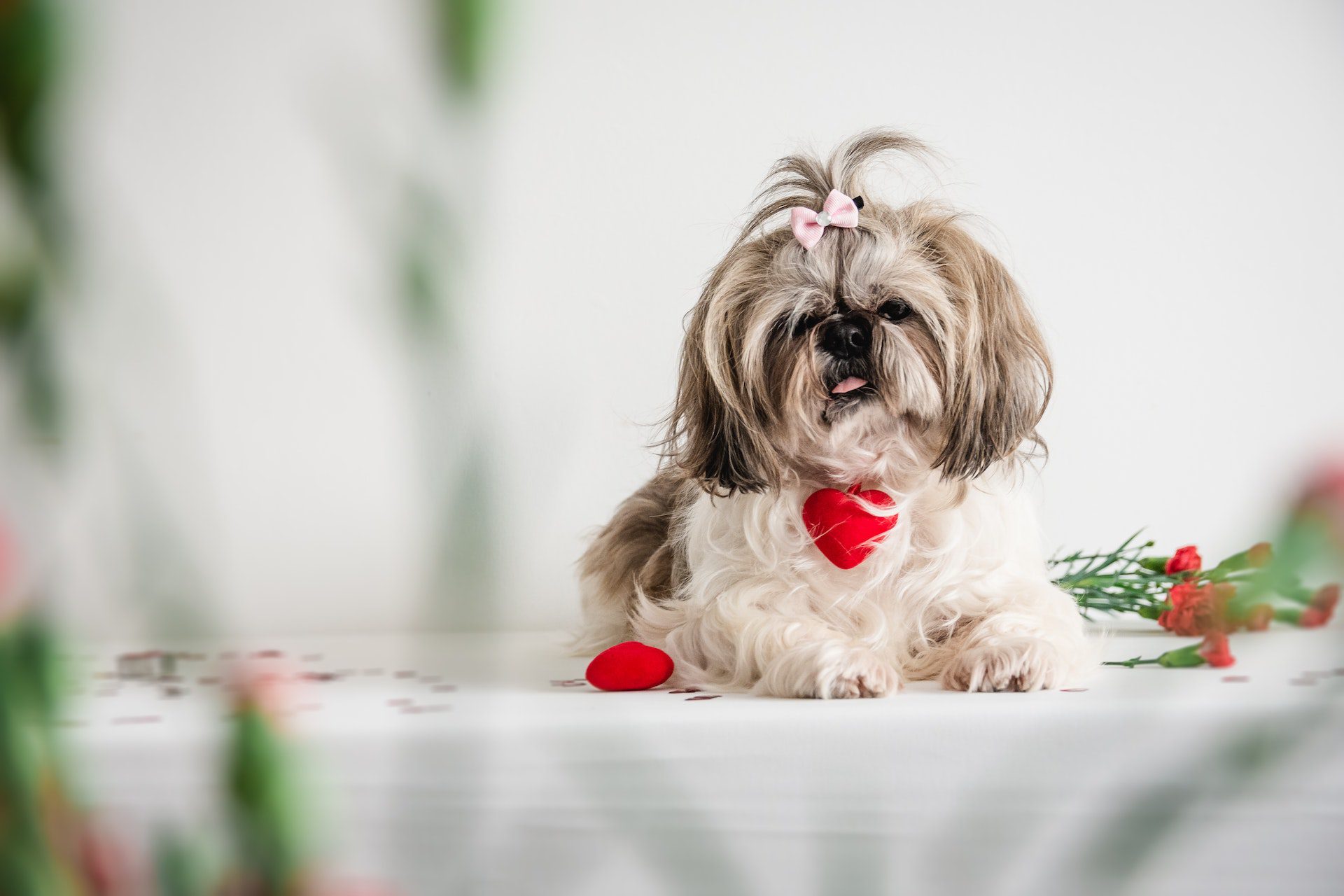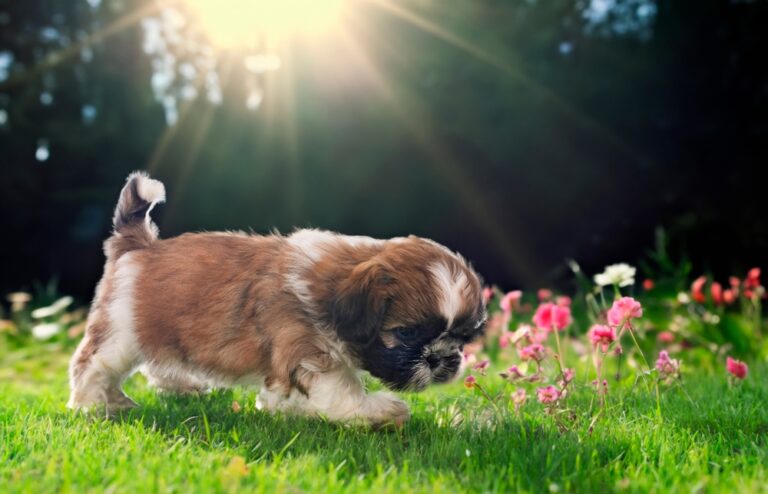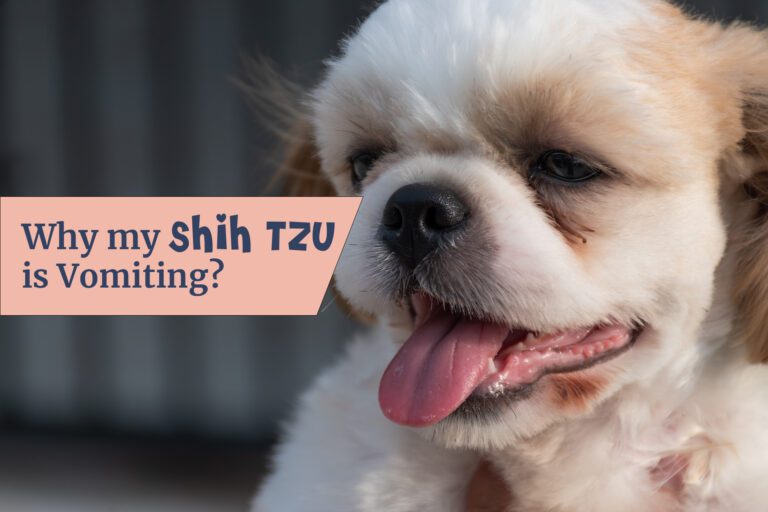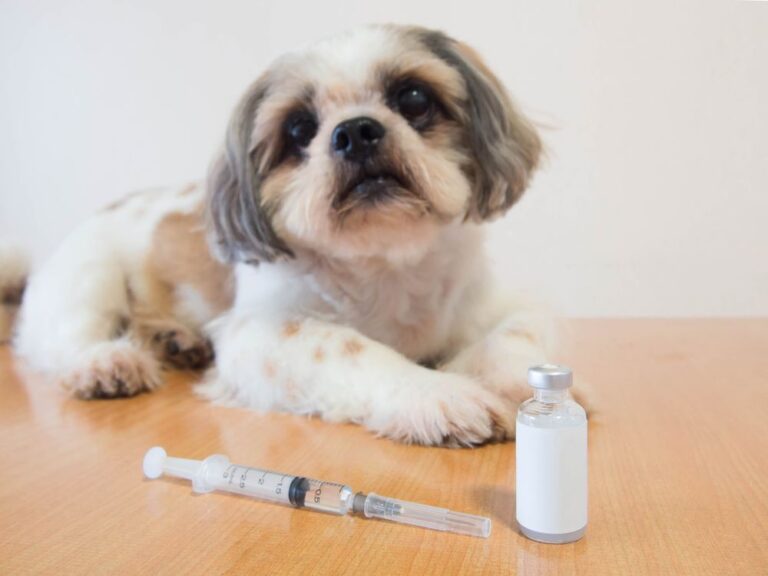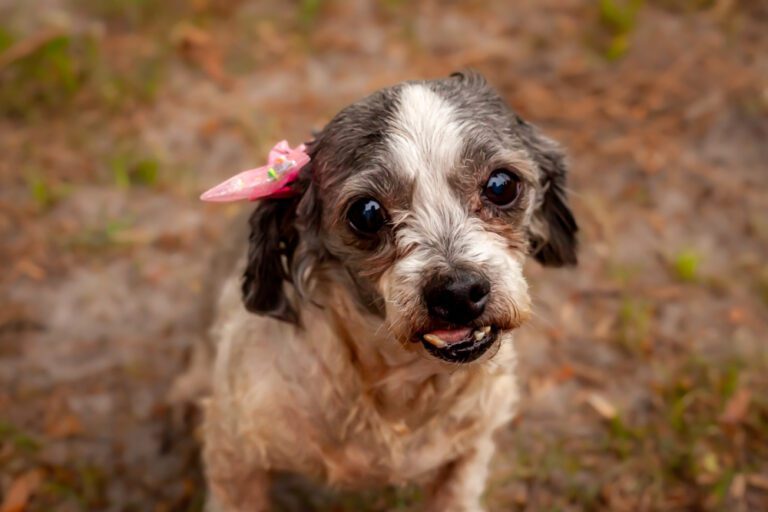Are Imperial Shih Tzus Healthy: Common Health Issues
Imperial Shih Tzus, also known as “teacup” or “miniature” Shih Tzus, is a small variation of the Shih Tzu breed that is particularly popular among people living in smaller homes or apartments. These charming and friendly dogs are known for their long, flowing coats and outgoing personalities and are generally considered healthy.
Are Imperial Shih Tzus healthy? This is a question that many people ask themselves when they are considering adding this breed to their family. The answer is yes, but Imperial Shih Tzus can be prone to certain health issues like all dogs. It is important for potential owners to be aware of these potential issues and to take appropriate steps to ensure that their Imperial Shih Tzu stays healthy and happy.
In this article, we will discuss some common health issues that may affect Imperial Shih Tzus and provide tips on preventing and managing these issues. By knowing what to look for, you can be better prepared to deal with any health concerns that may arise. We hope you find this information helpful!
What Makes Imperial Shih Tzus Unique?
Their Adorable Appearance
Imperial Shih Tzus are like the tiny, fluffy stars of the dog world. They have a unique look that sets them apart from other dogs. Imagine a small, cuddly dog that can easily fit in your lap. They have a beautiful, long coat that feels as soft as silk. Their eyes are big and sparkly, showing their curious and playful nature. These dogs come in different colors, each as cute as the next!
Small Size, Big Personality
Don’t let their small size fool you! Imperial Shih Tzus may be tiny, but they have huge personalities. They are like little bundles of energy and happiness. Their playful attitude can light up a room and bring everyone smiles. They love to play and cuddle, making them perfect companions. They are friendly to almost everyone, including other pets and kids, making them a great addition to any family.
Loyal and Loving Companions
One of the best things about Imperial Shih Tzus is how much they love their humans. They form strong bonds with their families. They love to be around people and are known for following their owners from room to room just to be close to them. This makes them great friends who offer lots of love and comfort. They are not just pets; they become a part of the family.
Great for Smaller Spaces
Their size makes them perfect for living in apartments or houses without big yards. They don’t need as much space to run around as larger dogs. This makes them an excellent choice for people who live in cities or have smaller homes. Even though they are small, they still need regular exercise to stay healthy and happy.
Easy to Train
Imperial Shih Tzus are intelligent and love to please their owners, which makes them relatively easy to train. They pick up on commands and tricks quickly. It’s essential to prepare them with kindness and patience. Remember, they respond well to positive reinforcement like treats and praise!
Perfect for First-Time Dog Owners
An Imperial Shih Tzu could be a great choice if you’ve never had a dog. They are easy-going and adaptable, which makes them perfect for first-time dog owners. They require regular grooming and care, but they are generally healthy and don’t have too many complicated needs.
A Note on Their Health
Even though they are usually healthy, like all breeds, Imperial Shih Tzus can have some health issues. Knowing about these is essential to care for your furry friend. Regular vet visits and proper care can help keep these issues in check.
Common Health Issues
Imperial Shih Tzus are susceptible to certain health problems. Some of the most common health issues can be categorized as Medical Issues and Behavioral Issues:
Medical Issues in Imperial Shih Tzus
Many of the health problems Imperial Shih Tzus faces are genetic. Some of the most common health problems seen in Imperial Shih Tzus include:
1) Respiratory Problems
-
Imperial Shih Tzus is a small breed of dog susceptible to respiratory problems.
-
The most common respiratory problem in Imperial Shih Tzus is brachycephalic syndrome, which is a condition that affects the dog’s ability to breathe properly.
-
Other respiratory problems affecting Imperial Shih Tzus include tracheal collapse, laryngeal paralysis, and chronic bronchitis.
-
Various factors, including genetics, obesity, and environmental factors such as smoke and pollution can cause respiratory problems in Imperial Shih Tzus.
-
Treatment for respiratory problems in Imperial Shih Tzus typically involves managing the symptoms and underlying causes.
2) Joint Problems
-
Because of their size and leg length, Imperial Shih Tzus are more likely to experience joint problems.
-
Two of the most common joint problems in Imperial Shih Tzus are luxating patellas and hip dysplasia.
-
Luxating patellas occur when the kneecap pops out of place, causing pain and lameness. Hip dysplasia is a condition that results in the deterioration of the hip joint, which can also cause pain and lameness.
-
Joint problems can be very painful for Imperial Shih Tzus and can decrease quality of life.
-
Several things can be done to help prevent or treat joint problems in Imperial Shih Tzus, including weight management, exercise, and supplements.
3) Eye Problems
-
Shih Tzus are prone to a number of eye problems, including cherry eye, dry eye, and entropion. Cherry eye is a condition in which the gland that produces tears becomes prolapsed and visible. Dry eye is a condition in which the eyes do not produce enough tears, leading to irritation and inflammation. Entropion is a condition in which the eyelids roll inward, causing the eyelashes to rub against the eyeball.
-
Some of the most common eye problems seen in Imperial Shih Tzus include cataracts, glaucoma, and corneal dystrophy.
-
Shih Tzus are also at an increased risk for developing dry eye syndrome, which can lead to a number of serious health problems.
-
Treatment for eye problems in Shih Tzus typically involves the use of medication or surgery.
-
Prevention of eye problems in Imperial Shih Tzus is often possible through regular vet check-ups and the use of eye drops or ointments.
-
Early detection and treatment of eye problems in Imperial Shih Tzus are important to prevent further complications and preserve vision.
Related: Shih Tzu Eye Care: 17 Problems, Symptoms, and Treatments
4) Dental Problems
-
Shih Tzus are a breed of dog that commonly has dental problems.
-
The most common dental problem in Imperial Shih Tzus is periodontal disease.
-
Periodontal disease is a condition that affects the gums and bones that support the teeth.
-
If left untreated, periodontal disease can lead to tooth loss.
-
Other dental problems affecting Imperial Shih Tzus include tooth decay, gingivitis, and tartar buildup.
-
Dental problems can be prevented by brushing the teeth regularly and providing the dog with chew toys or bones to gnaw on.
-
If a Shih Tzu does develop dental problems, treatment may involve cleaning the teeth, extracting diseased teeth, or performing surgery.
-
Dental problems can be painful for dogs and cause them to lose interest in food and play.
-
Dental problems can also lead to other health problems, such as infections in the mouth or heart disease.
-
Taking your Shih Tzu to the vet for regular checkups is important to ensure that any dental problems are caught early and treated appropriately.
Related: Shih Tzu Teeth Care: A Complete Guide
5) Ear Problems
-
Imperial Shih Tzus are susceptible to a variety of ear problems due to their long, floppy ears.
-
Common ear problems include ear infections, ear mites, and allergies.
-
Ear infections are dogs’ most common ear problems, and Imperial Shih Tzus are no exception. Ear infections occur when the ear becomes inflamed or irritated and can be caused by bacteria, yeast, or allergies.
-
Ear mites are tiny parasites that live in the ear canal and feed on wax and oil. They can cause severe irritation and inflammation of the ear canal.
-
Allergies are a common trigger for ear problems in dogs, and Imperial Shih Tzus are especially prone to them. Allergies can be caused by environmental factors such as pollen or dust, or by food ingredients such as wheat or corn.
-
Treatment for ear problems varies depending on the underlying cause. Ear infections are typically treated with antibiotics, while ear mites are usually treated with topical medications. Allergies can be more difficult to treat but may require a combination of medication, diet changes, and avoidance of triggers.
-
Prevention is the best way to avoid ear problems in Imperial Shih Tzus. Regular cleaning of the ears with a gentle cleanser can help to remove debris and prevent infection. Avoiding exposure to allergens is also important, and using an anti-inflammatory medication may be necessary for dogs with severe allergies
6) Skin Problems
-
Imperial Shih Tzus are prone to various skin problems due to their long, thick coats.
-
Common skin problems include allergies, hot spots, and Yeast infections.
-
Allergies are the most common skin problem in Imperial Shih Tzus. Various things, including food, environmental factors, and fleas can cause allergies.
-
Hot spots are another common skin problem in Imperial Shih Tzus. Hot spots are irritated, red patches of skin that can be painful and itchy. Allergies or other underlying skin conditions often cause them.
-
Yeast infections are a type of fungal infection that can affect the skin of Imperial Shih Tzus. An overgrowth of the yeast fungus on the skin often causes yeast infections.
-
Treatment for skin problems in Imperial Shih Tzus typically involves a combination of medication and good grooming practices.
-
Medication for skin problems may include antibiotics, antifungals, steroids, and antihistamines.
-
Good grooming practices for Imperial Shih Tzus include regular brushing, bathing, and ear cleaning.
-
It is important to consult with a veterinarian if your Imperial Shih Tzu is experiencing any type of skin problem.
-
Early diagnosis and treatment of skin problems are essential for preventing more serious health problems down the road
Related: Why Does Shih Tzu Scratching A Lot: How To Help Them Stop?
7) Kidney Issues
-
Kidney disease is also a concern in Imperial Shih Tzus.
-
The breed is susceptible to a condition called renal dysplasia, which is when the kidneys do not develop properly.
-
This can lead to kidney failure and other health problems.
Related: Shih Tzu Urinary Problems: Expert Tips To Understand and Prevent
8) Heart Issues
-
Due to their smaller stature, Imperial Shih Tzus are more prone to developing heart conditions.
-
The most common heart issue in Imperial Shih Tzus is called pulmonic stenosis, which is a pulmonary valve narrowing.
-
Pulmonic stenosis can cause symptoms such as exercise intolerance, fainting, and even death.
-
Other heart issues that have been seen in Imperial Shih Tzus include patent ductus arteriosus (PDA), subaortic stenosis (SAS), and ventricular septal defect (VSD).
-
PDA is a congenital heart defect that occurs when the ductus arteriosus, a blood vessel that normally closes after birth, does not close properly.
-
SAS is a narrowing of the space between the left ventricle and the aorta, which can cause problems with blood flow.
-
VSD is a hole in the wall between the ventricles, which can cause blood to flow from the left ventricle to the right ventricle and put a strain on the heart.
-
Heart defects such as these can be detected through tests such as echocardiography or cardiac MRI.
-
Treatment for heart defects depends on the severity of the defect but may include medications, surgery, or lifestyle changes.
-
Imperial Shih Tzus with heart defects should be closely monitored by their veterinarian to ensure that they are receiving the best possible care.
9) Stomach & Liver Issues
1. Excessive Gas
One of the most common stomach issues that Imperial Shih Tzus experiences is excessive gas. Gas can be caused by a variety of factors, including eating too quickly, eating certain foods, or drinking carbonated beverages. If your dog is experiencing excessive gas, you may want to try feeding them smaller meals more slowly, avoiding foods that are known to cause gas, and switching to non-carbonated water.
2. Diarrhea
Diarrhea is a common stomach issue for Imperial Shih Tzus. It can be caused by eating too much, certain foods, or drinking contaminated water. If your dog is experiencing diarrhea, you may want to try feeding them smaller meals more slowly, avoiding foods that are known to cause diarrhea, and switching to filtered or bottled water.
3. Vomiting
Another common stomach issue for Imperial Shih Tzus is vomiting. Vomiting can have various causes, such as overeating, eating certain foods, or consuming contaminated water. If your dog is vomiting, you may want to try feeding them smaller meals more slowly, avoiding foods that are known to cause vomiting, and switching to filtered or bottled water.
4. Gastritis
Gastritis is a condition in which the stomach lining becomes irritated. It occurs for various reasons such as bacterial or viral infections, parasites, allergies, and stress. If your dog is diagnosed with gastritis, your veterinarian will likely recommend a course of treatment that may include antibiotics, anti-inflammatory drugs, and/or probiotics.
5. Exocrine Pancreatic Insufficiency
Exocrine pancreatic insufficiency (EPI) is a condition that occurs when the pancreas does not produce enough enzymes to properly digest food. EPI can be caused by a number of factors, including genetics, pancreatitis, cancer, and surgery. If your dog is diagnosed with EPI, your veterinarian will likely recommend a course of treatment that may include dietary changes and enzyme replacement therapy.
6. Pancreatitis
Pancreatitis is a condition that occurs when the pancreas becomes inflamed. It can be caused by a number of factors, including bacterial infections, viral infections, parasites, allergies, and stress. If your dog is diagnosed with pancreatitis, your veterinarian will likely recommend a course of treatment that may include antibiotics, anti-inflammatory drugs, and/or probiotics.
7. Hepatic Lipidosis
Hepatic lipidosis (HL) is a condition that occurs when there is an accumulation of fat in the liver. HL can be caused by a number of factors, including obesity, diabetes, and starvation. If your dog is diagnosed with HL, your veterinarian will likely recommend a course of treatment that may include weight loss, dietary changes, and supplements.
Behavioral Issues in Imperial Shih Tzus
Behavioral issues are often the root cause of health problems in Imperial Shih Tzus. From inadequate diets and insufficient exercise to separation anxiety and boredom, behavioral problems can lead to a wide range of health issues, including obesity, joint problems, and skin conditions. While some behavioral problems are simply the result of bad owners, others are caused by the physical characteristics of the breed. It is important for owners of this breed to be aware of the potential for behavioral problems and take steps to prevent them. By providing a healthy diet, plenty of exercise, and ample companionship, owners can help ensure that their Imperial Shih Tzu remains healthy and happy. Some common behavioral issues in Imperial Shih Tzus are:
1. Separation Anxiety
One of the most common behavioral issues seen in Imperial Shih Tzus is separation anxiety. This is characterized by a dog becoming anxious or stressed when left alone. Symptoms may include whimpering, barking, pacing, and destructiveness. Separation anxiety can be caused by a number of factors, including a lack of socialization, prior traumatic experiences, and genetics.
Related: Shih Tzu Anxiety: How To Deal With It?
2. Fear of loud noises
Many Imperial Shih Tzus are also afraid of loud noises, such as thunderstorms or fireworks. This fear can often lead to shaking, panting, and hiding. In some cases, dogs may also attempt to escape from their homes in an effort to find a safe place.
3. Aggression
Imperial Shih Tzus may also display aggression towards other dogs or people. This behavior is often the result of fear or insecurity and may be directed towards unfamiliar dogs or people, or those that the dog perceives as a threat. Aggressive behaviors may include growling, snapping, and biting.
4. Possessiveness
Some Imperial Shih Tzus may also become possessive of their food or toys. This behavior is often seen in dogs that have not been properly socialized. It can lead to aggression if the dog feels that his possessions are being threatened. Possessive behaviors may include growling, guarding food bowls, or toys, and stealing objects from other people.
5. Destructiveness
Many Imperial Shih Tzus are also destructive when left alone for long periods of time. This behavior is often the result of boredom or frustration and may include chewing on furniture or destroying household items. Proper exercise and mental stimulation can prevent destructive behavior.
How to Prevent Health Issues in Imperial Shih Tzus?
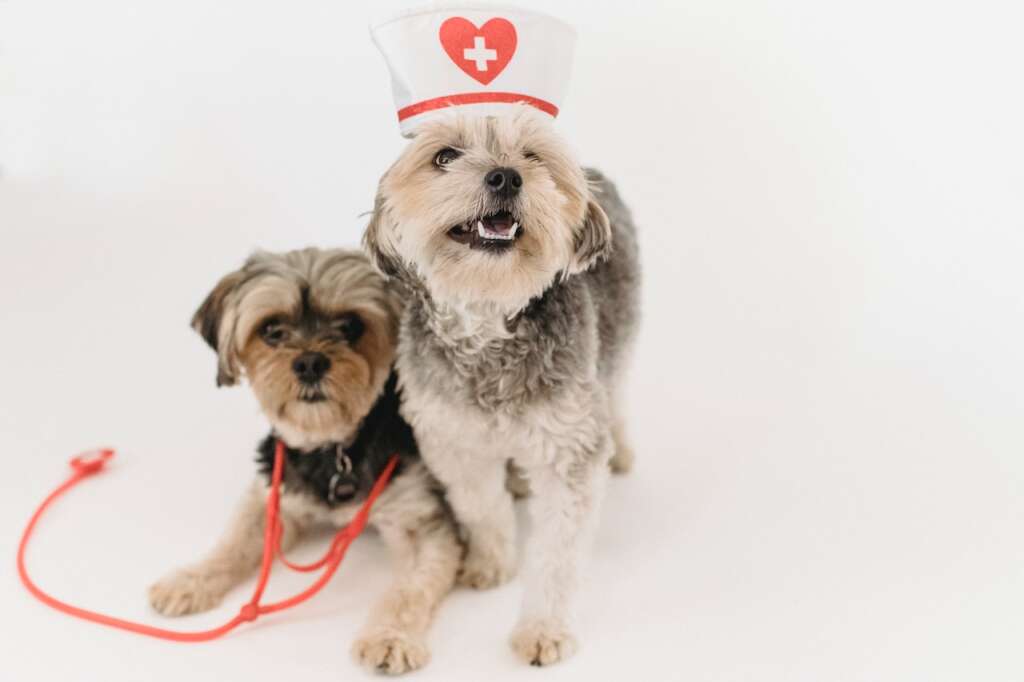
There are several things that you can do to prevent and manage health issues in Imperial Shih Tzus:
1. Feed your dog a high-quality, balanced diet
A healthy diet is important for all dogs, but it is especially important for small breeds like Imperial Shih Tzus, as they are prone to obesity. Choose a commercial dog food that is appropriate for your dog’s age and size, and avoid feeding your dog table scraps or too many treats.
The Perfect Meal Plan
Think of your Shih Tzu’s diet like a puzzle. It needs the right pieces to fit perfectly. Good dog food should have:
- Protein: This is like the building block of their diet. It helps them stay strong and grow properly. Chicken, beef, or fish are excellent protein sources.
- Carbohydrates: These give your dog energy to play and explore. But too much can lead to weight gain. Look for foods with healthy carbs, like sweet potatoes or brown rice.
- Fats: Fats keep their coat shiny and healthy. But, just like with us, too much fat isn’t good. Healthy fats come from ingredients like fish oil.
- Vitamins and Minerals: These are like little health boosters. They help with everything from strong bones to a healthy heart. Dog foods with added vitamins and minerals are a great choice.
Treats and Snacks
We all love treats, and your Shih Tzu does too! But remember, treats should be just a small part of their diet. Too many can lead to weight problems. Choose healthy treats and give them in moderation.
Special Dietary Needs
Some Imperial Shih Tzus might have food allergies or sensitivities. It might be a food issue if your dog is scratching a lot or has tummy troubles. Your vet can help you figure out the best diet for them.
Water, Water Everywhere
Remember water! Fresh, clean water should always be available. It helps keep your Shih Tzu hydrated and healthy.
The No-No List
Some foods are a big no for dogs. Things like chocolate, grapes, and onions can be harmful. Always check if a food is safe before sharing it with your furry friend.
2. Brush your dog’s teeth regularly
Dental problems are common in Shih Tzus, so it is important to brush your dog’s teeth regularly to prevent tooth decay and gum disease. Use a toothbrush specifically designed for dogs, and a toothpaste that is safe for dogs to swallow.
3. Protect your dog’s eyes
Eye problems, such as cherry eye, dry eye, cataracts, and retinal atrophy, are common in Shih Tzus. To protect your dog’s eyes, keep your dog’s face and eyes clean and avoid exposing them to harsh chemicals or other irritants.
4. Get your dog checked by a veterinarian regularly
Regular visits to the veterinarian can help to identify and manage any potential health issues that your Imperial Shih Tzu may have. Be sure to keep up with your dog’s vaccinations and any other recommended preventive care.
5. Provide your dog with regular exercise
Exercise is important for all dogs, but it is especially important for small breeds like Imperial Shih Tzus, as they are prone to obesity. Take your dog for regular walks and play with them to keep them active and healthy.
Keeping Your Shih Tzu Active and Happy
Imperial Shih Tzus might be small, but they have a lot of energy! Regular exercise is super important to keep them healthy and happy. Think of it like playtime that’s good for their health. Let’s look at how to ensure your furry friend gets enough activity.
Daily Walks
Walking is an excellent way for your Shih Tzu to explore and stay fit. Aim for at least two short walks a day. Remember, their legs are tiny, so they don’t need long walks. A stroll around the block or a short hike in the park can be perfect. Walking helps keep their weight in check and their joints healthy.
Playtime
Playtime isn’t just fun, it’s also exercise! Games like fetch or tug-of-war are great. You can play indoors or in a fenced yard. Toys can keep them busy and moving. This is also an excellent way for you and your dog to bond.
Training
Training exercises, like learning new tricks or commands, are great for their brains. It keeps them sharp and focused. This is like a workout for their mind; it can be a lot of fun!
Socializing
Let your Shih Tzu play with other friendly dogs. This can be at a dog park or playdates with friends’ dogs. Socializing is great for their mental health and teaches them to behave around other pups.
Keeping it Safe
Remember, Shih Tzus can tire quickly and have breathing problems, especially in hot or humid weather. Always watch for signs that they’re getting tired or overheated. During scorching days, it’s better to play indoors.
Regular Check-Ups
Like us, dogs can sometimes have health issues that make exercise hard. Regular vet check-ups can ensure your Shih Tzu is always ready for their next adventure.
By following these simple steps, you can help to prevent and manage health issues in your Imperial Shih Tzu and ensure that they live a long healthy life.
Conclusion
Taking care of an Imperial Shih Tzu is a rewarding journey filled with love and joy. These little bundles of fur need regular vet check-ups, proper nutrition, daily exercise, and grooming to stay healthy and happy. Most importantly, they thrive on your love and attention. As loyal companions, they offer us unconditional love and endless fun.
By taking good care of them, you ensure they lead a long, joyful life full of playful moments and cuddles. If you’re considering bringing an Imperial Shih Tzu into your life, prepare for an adventure filled with laughter and affection. Remember, being a pet parent is a big responsibility, but the rewards of love and companionship are immeasurable. Your furry friend will be a cherished part of your family, sharing in all of life’s precious moments.
FAQ’s
Does Imperial Shih Tzus Get Sick Easily?
Imperial Shih Tzus are generally healthy, but like all dogs, they can get sick. They might face specific health issues because of their size and unique features. Regular vet visits and good care can keep them healthy.
What are the signs that my Shih Tzu is unwell?
How Can I Keep My Shih Tzu Healthy?
To keep your Imperial Shih Tzu healthy:
Feed them a balanced diet.
Make sure they get enough exercise, but only a little.
Keep up with regular vet visits.
Brush their teeth and groom them regularly.
Love and care for them a lot!
Are There Any Special Care Needs for My Shih Tzu?
Yes, there are some extraordinary things to remember:
Be gentle with their tiny bodies.
Keep an eye on their breathing, especially in hot weather.
Watch their weight to prevent joint problems.
Clean their eyes and ears regularly to avoid infections.
Can My Shih Tzu Live a Long Life?
Imperial Shih Tzus can live a long and happy life with good care. Many live for 10-16 years. Loving and caring for their health can help them live to a ripe old age.
How Often Should My Shih Tzu Be Groomed?
They need regular grooming because of their long coat. Brush them a few times a week and give them a bath when needed. Regular grooming keeps their coat and skin healthy.

